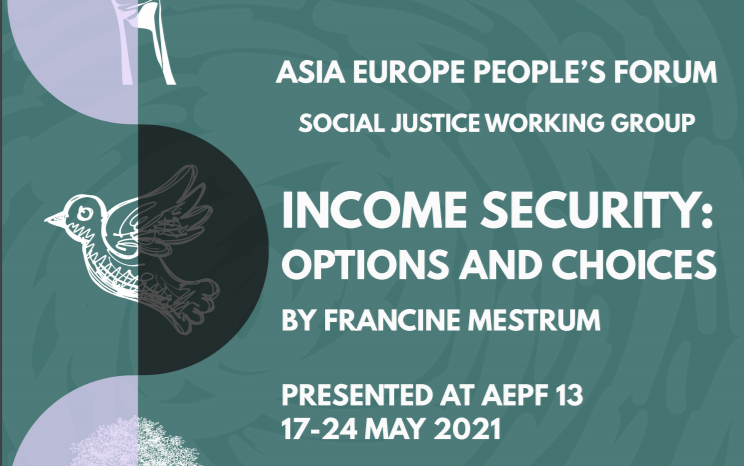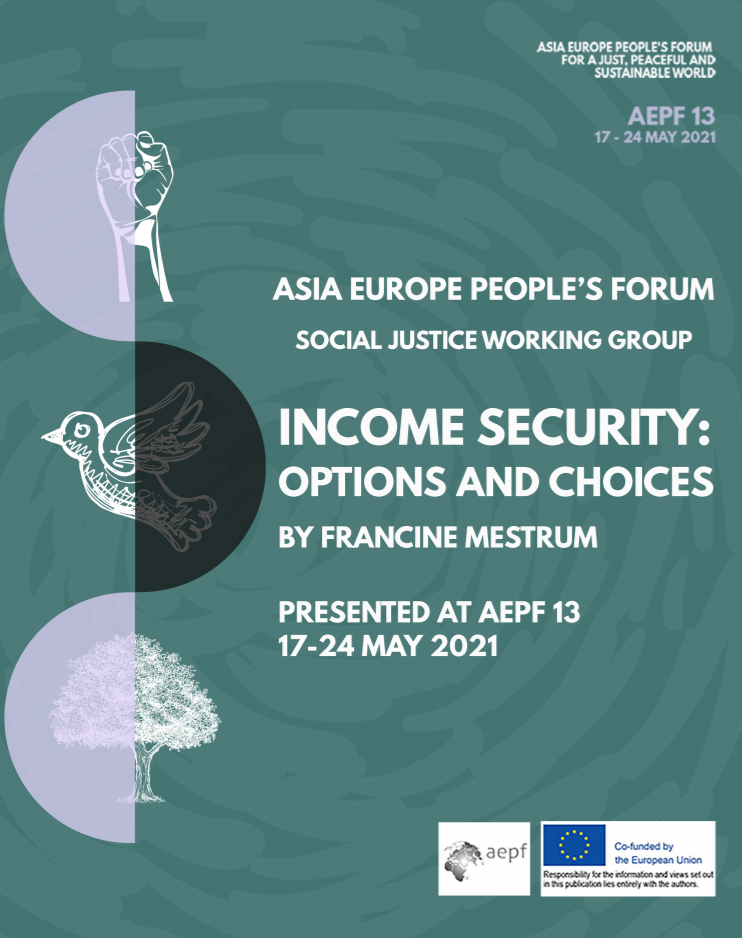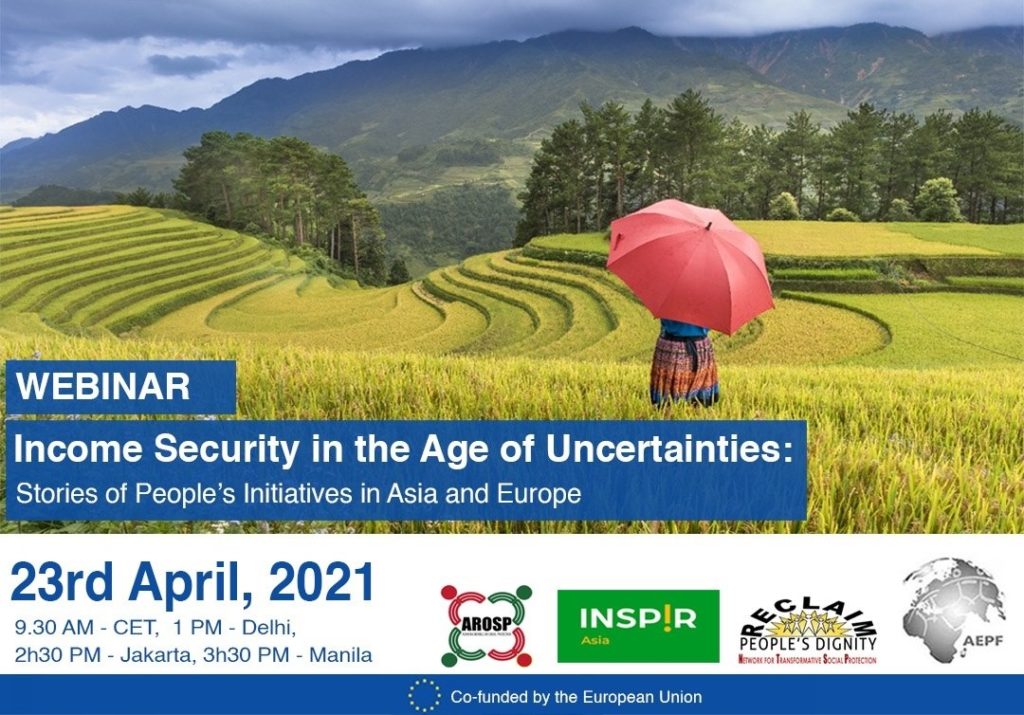Pakistan against Inequalities on the Eve of the World Economic Forum
March 07, 2025
Pakistan against Inequalities on the Eve of the World Economic Forum
Pakistan against Inequalities on the Eve of the World Economic Forum
A Report by Murddabir Ali (Coordinator – Fight Inequality Alliance Pakistan)
Ahead of the World Economic Forum in Davos (2024) a people’s movement ‘Fight Inequality Alliance Pakistan’ responded to the call of the Global Secretariat and put up an incredible resistance against the top 1% rich class by protesting in sixteen cities across Pakistan. A Report on this resistance follows:
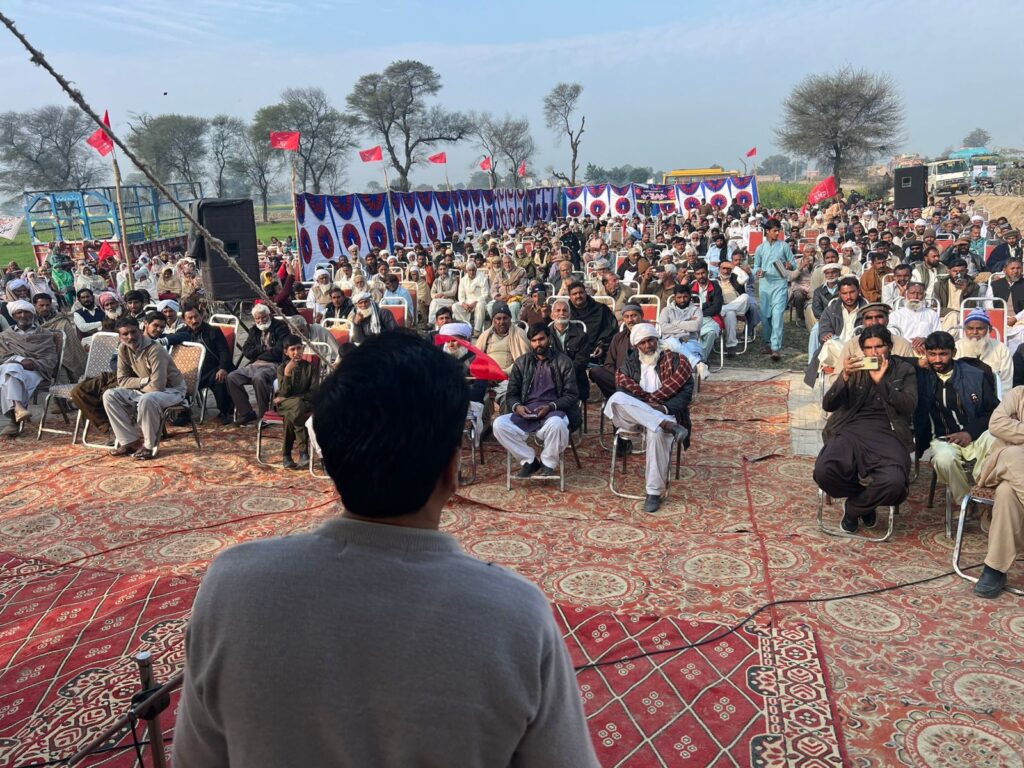
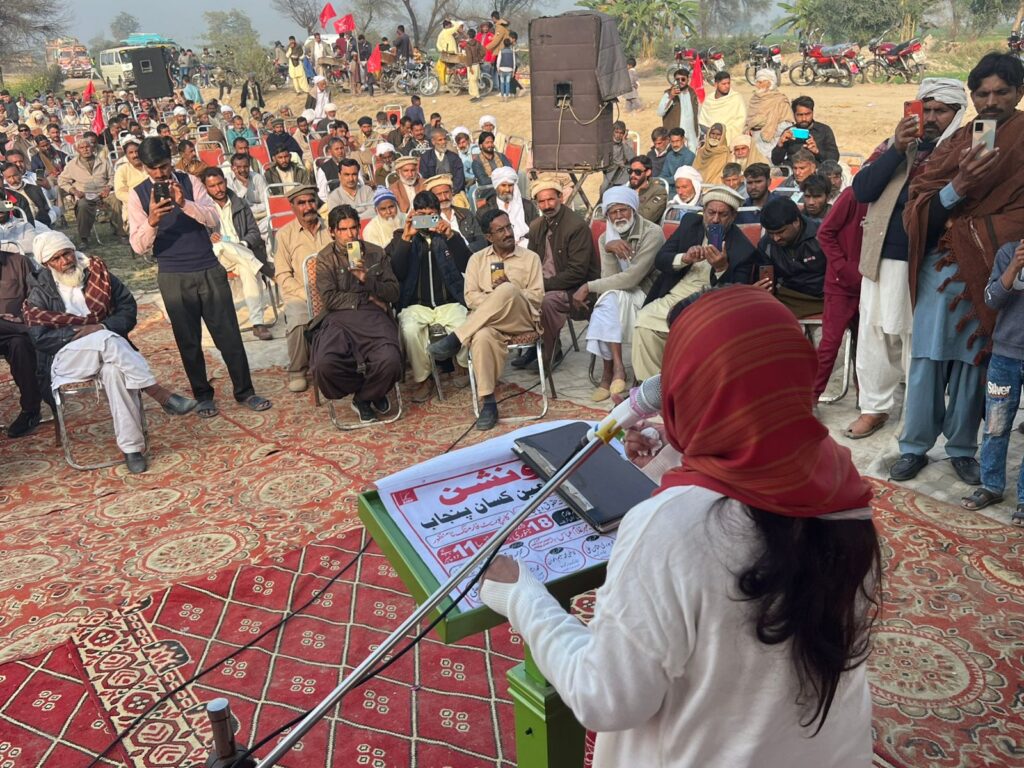
Lahore:
A large number of women from Chungi Amar Sidhu, a low income neighbourhood in the vicinity of Lahore showed up under the leadership of comrade Riffat Maqsood. The protest was joined by people of all ages, groups, young, old and children. Slogans were raised against the top1% of corporate profiteers.
A street theatre group of team Umer Zamran performed. Their performances showed how the SYSTEM is inherently disadvantageous for the majority living under the poverty line and if the current structure of exploitation are not stopped it would create problems for our planet as a whole.
Jhang:
Factory workers and farmers gathered outside the Pakistan Kissan Rabita Committee office on Chiniot Road. Khalq Youth Front member Ali Syed and Fahad had travelled from Islamabad to participate in the protest. =
The protest was covered by the local print and social media. Akbar Jutt who is the lead organizer of PKRX and a Council member of FIA Pakistan led the protests in this region.
Faisalabad:
Faisalabad witnessed one of the biggest demonstrations of this season. The majority of the protesters were labourers. Under the leadership of Baba Latif Ansari (Council Member FIA) the factory workers demanded implementation of minimum wage and issuance of social security cards. They held placards that showed a redline warning to the Billionaires.
The protesters blocked the main Jhang road of Faisalabad for an hour. Rajanpur: The protest in Rajanpur took place in Jampor village. Farmers protested against the unfair prices fixed by the government on cash crops like sugarcane. They demanded that farmers should be taken on board while finalizing the minimum support price the government announces to facilitate the farmers.
Kasur:
Kasur is a city adjacent to Lahore. Here, mainly activist groups came out to protest against the exploitation by the super rich. Gujranwala: The protest took place in Aimenabad area where mostly factory workers live.
The protest demanded rights due to the workers including old age benefits, implementation of minimum wages and issuance of social security cards.
Sahiwal:
The main issue raised by the farmers of Sahiwal was land grabbing by big corporates in the name of corporate farming. Arifwala: Today’s biggest protest was held in Arifwala Pakpattan.
Comrade Farooq Tariq joined the protest and reinforced the demands of local farmers about their land and dignified livelihoods. In his speech comrade Farooq raised the issue of corporate farming and building of six new canals on the River Indus to irrigate the Cholistan desert where the land is distributed amongst 1% of the super rich class of the country.
Larkana:
Senior comrade Mujeeb Peerzado (Council Member) led the protest in Mohenjodaro. Mohenjodaro is the symbol of the Indus Valley civilization and one of the oldest cities in the Subcontinent. The people demanded basic necessities for the poor people fulfilled as a priority and that is possible by taxing the super rich elite class.
Mardan:
The Mardan protest was organized by Kissan Kerkela Organization headed by Gulzar Khan (Council Member). This is one of the prominent farmer organizations in KP province of Pakistan.
The farmers in the protest demanded that they should be given fair prices for their produce and less taxes should be imposed.
Qila Abdullah:
Qila Abdullah is one of the remote areas in Balochistan Province. Despite the very harsh weather people came out and protested against the policies of the elite who have made the situation for the vast middle-class unbearable.
Islamabad:
Conveyor of the Fight Inequality Alliance Pakistan, Nisar Shah led the protest in the capital Territory Islamabad. The protest was held outside the National Press Club.
Human rights activists and progressive political workers joined the protest and demanded imposition of strict taxes on the elite who earn their profit by exploiting the labour of the working class.
Toba Tek Singh:
Toba Tek Singh is the historical city of Punjab where Comrade Shabbir organised the Bhatta Mazdoor (Kiln Workers) Union workers to protest against the capture of resources by the Global elite and the economic policies that they decide in international forums like World Economic Forum.
Shikarpur:
Shikarpur had the third largest protest today. Alongside RedLine To the Billionaires the protest locally carried the name Darya Bachao (Save the River). The protest was led by Comrade Ali Khoso (Council Member FIA Sindh).
A large number of farmers and workers joined the protest and reverberated the highly important issue of water shortage to the lower riparian Sindh area. Farmers called upon the government to take adequate action to save Sindh land from becoming barren.
In Punjab the core issue highlighted in the protest was condemning corporate farming, including the Kissan Card scheme and retaining the landownership rights of small landholders.
In Sindh the unequal distribution of water was the predominant issues, the protesters demanded that making six new canals on the Indus river should be halted immediately.
Due to harsh weather protests in Balochistan could not take place properly. We wrote a brief pamphlet about Global Action and sent it to the respective cities but it could not reach some cities because of the long distance. Next time we will send the relevant material at least three days before the activity.
Murddabir Ali
Coordinator
Fight Inequality Alliance Pakistan


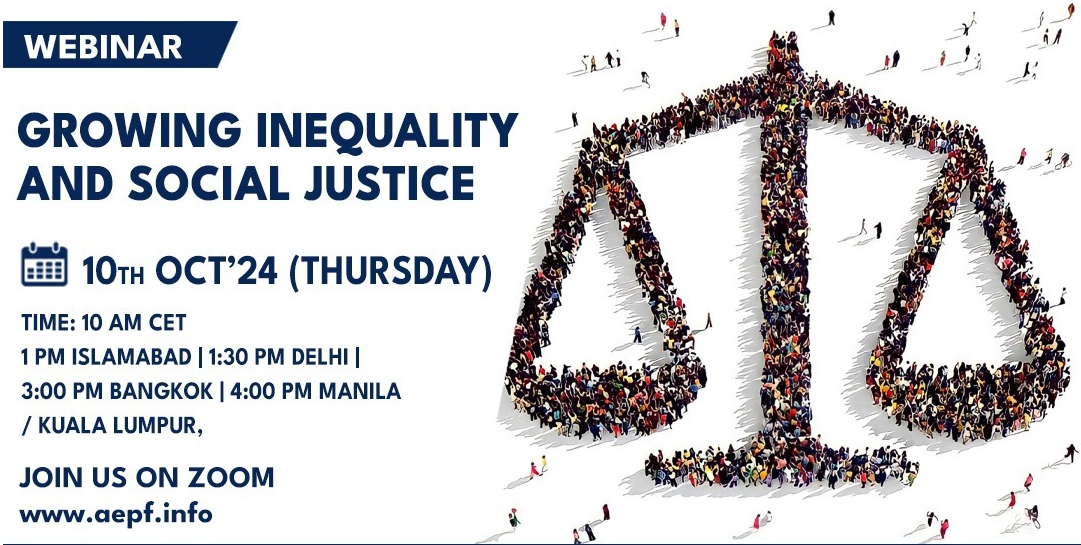
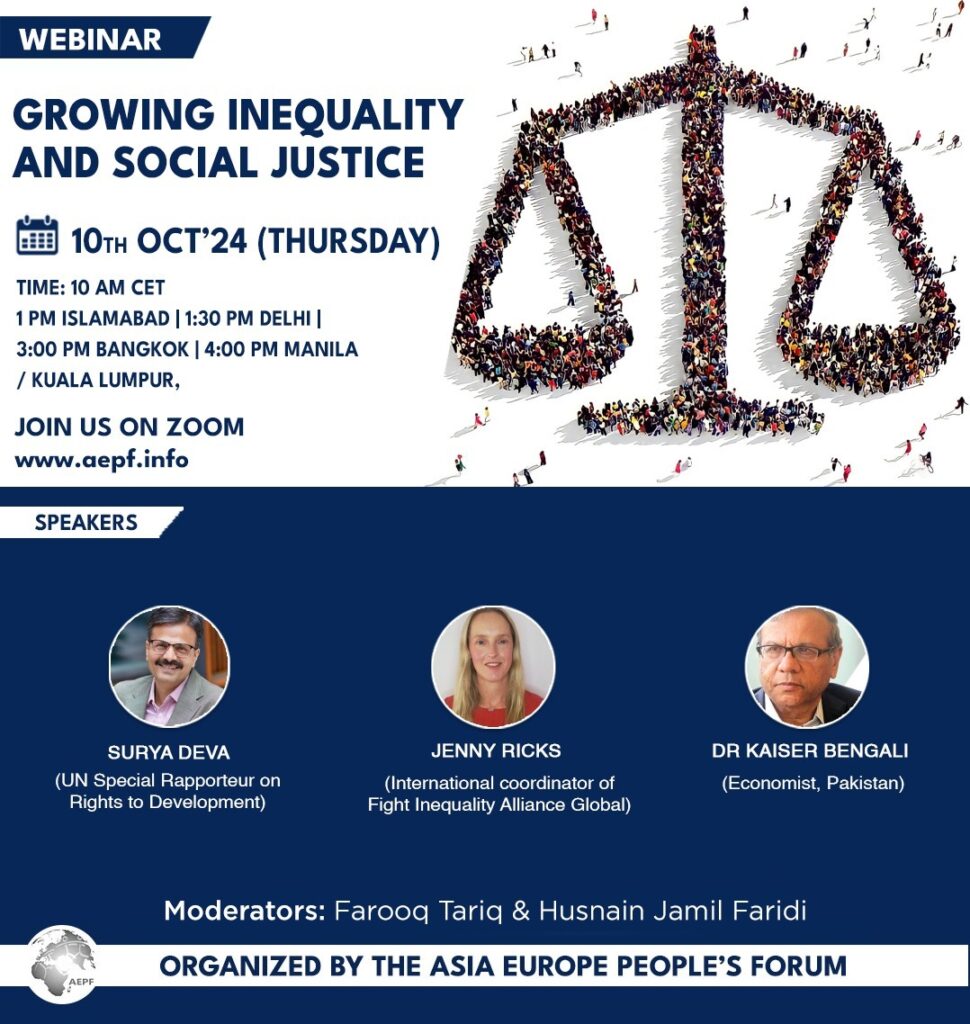

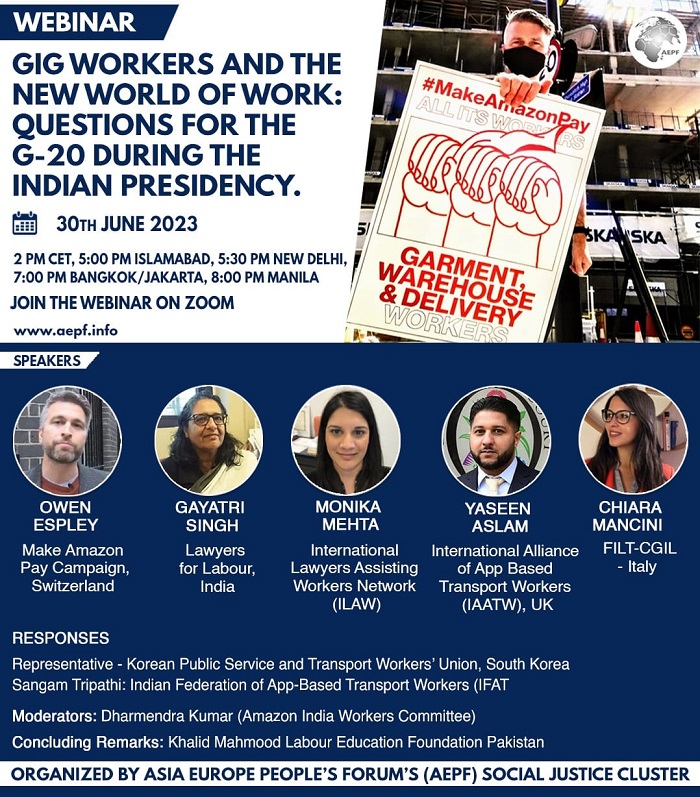
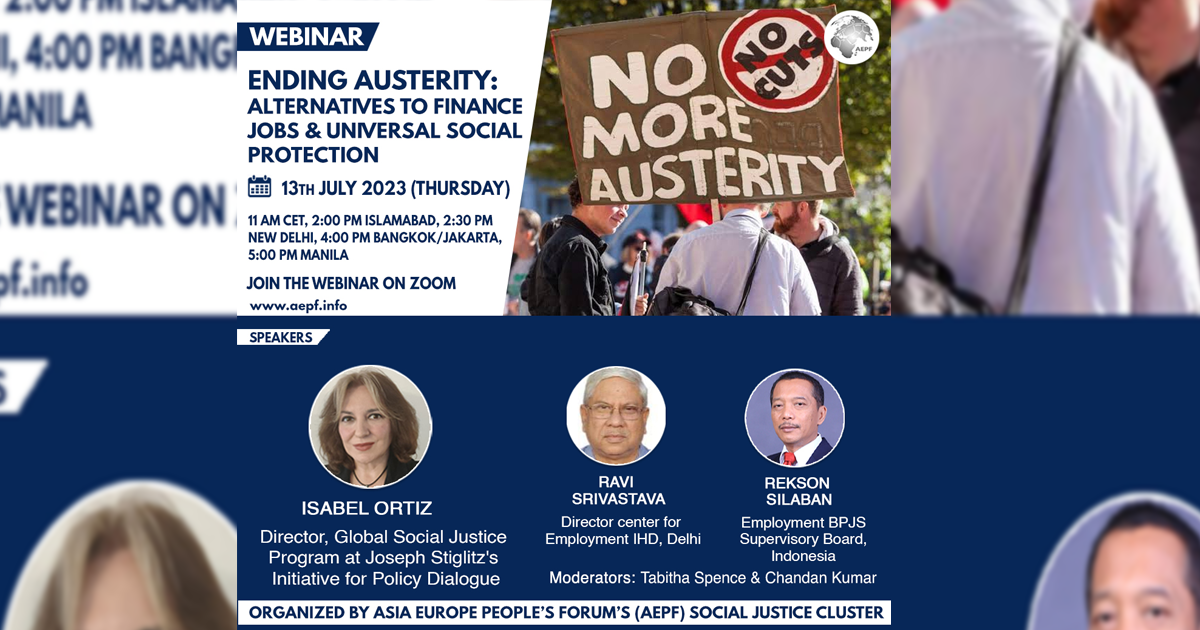
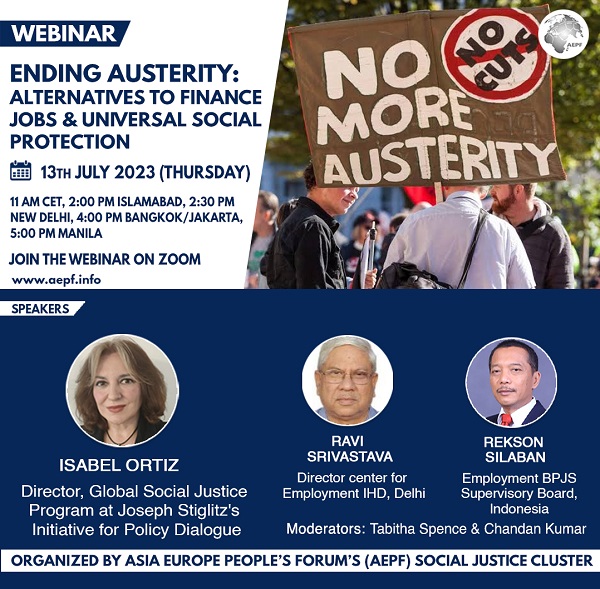
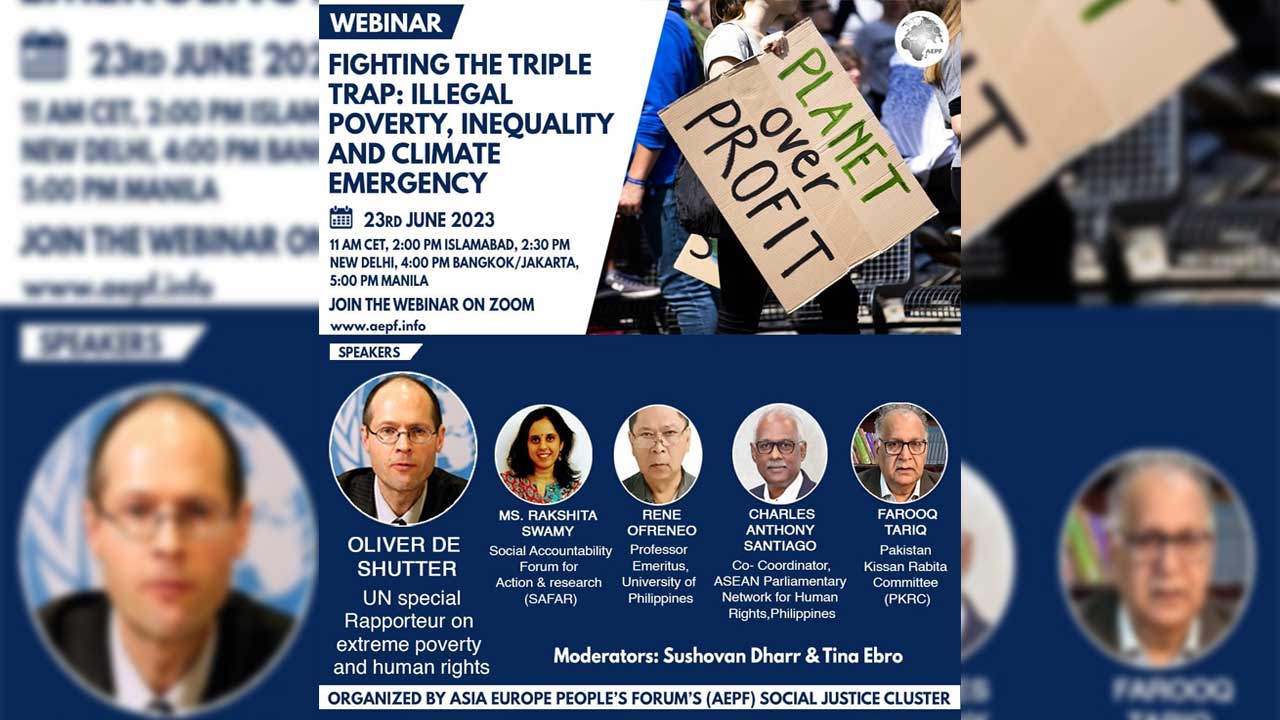
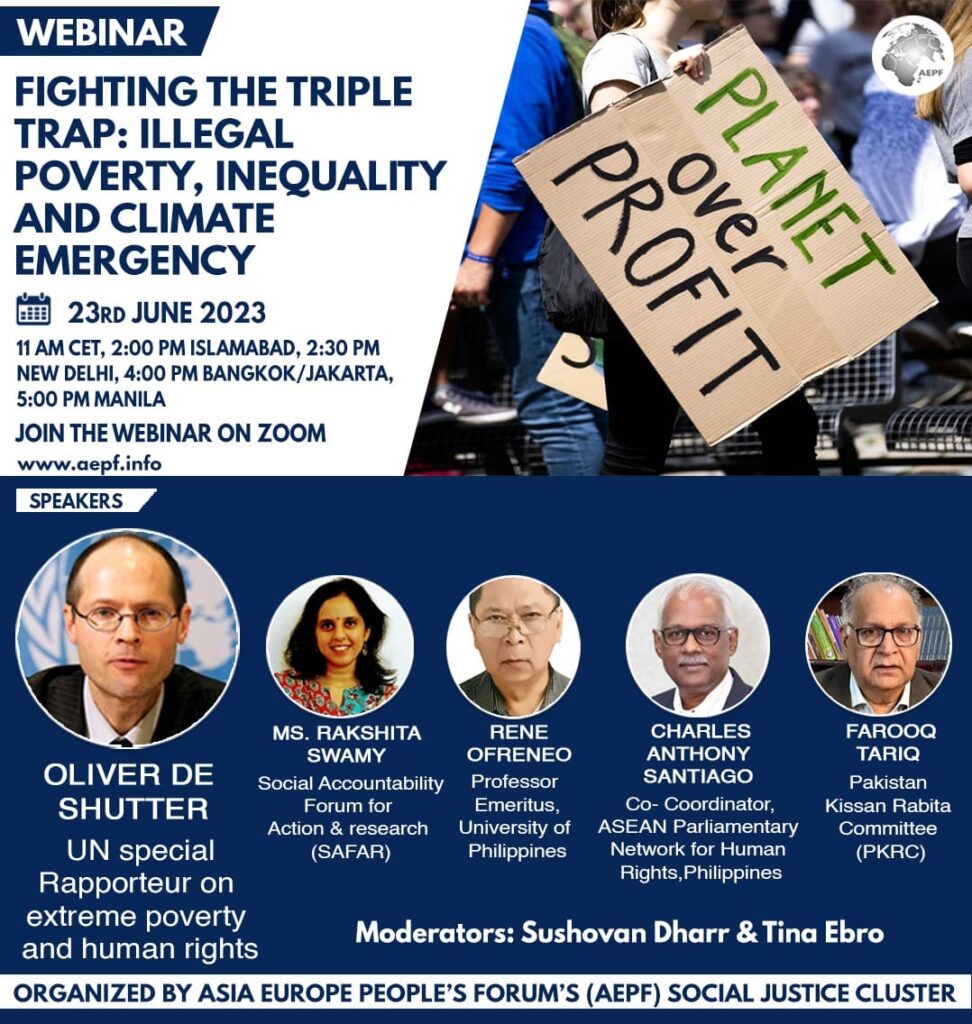

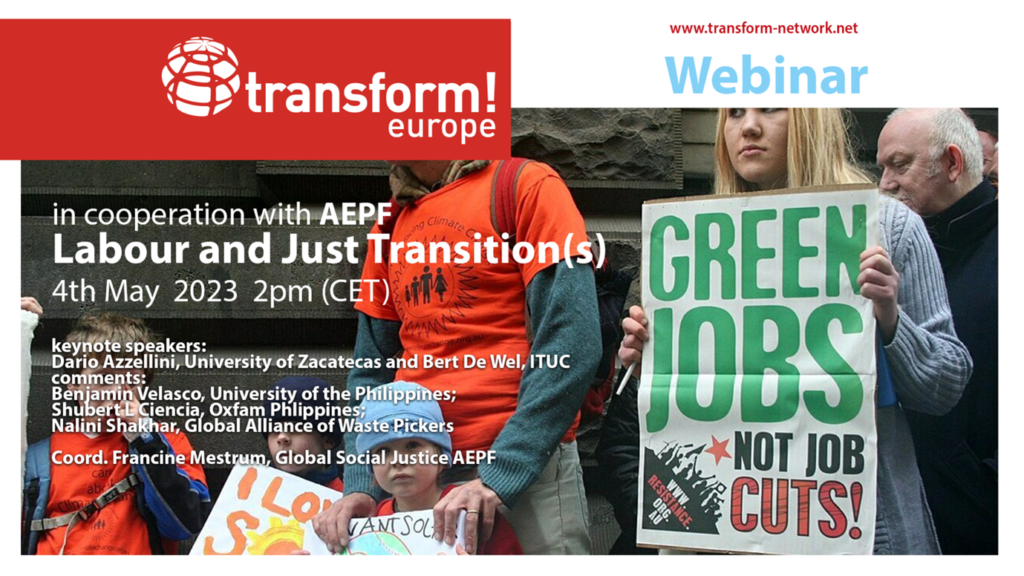 Climate justice and social justice go hand in hand, one is not possible without the other. Less clear is how this can be materialised. From a social justice perspective, many questions remain unanswered in various sectors and many contradictions remain unsolved.
Climate justice and social justice go hand in hand, one is not possible without the other. Less clear is how this can be materialised. From a social justice perspective, many questions remain unanswered in various sectors and many contradictions remain unsolved.
